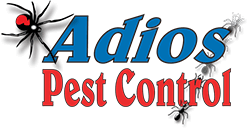Traditional pest control once relied entirely on observation, manual traps, and chemical treatments. Today, advanced technologies turn this process into an interactive system where data, sensors, and digital modeling replace guesswork. Technicians use mobile apps and cloud dashboards that resemble game interfaces — with progress bars, heat maps, and achievement markers for each completed zone. This visualization not only simplifies reporting but also keeps teams engaged, turning each mission into a measurable challenge.
Gamification and Motivation in Pest Management
Pest control often demands repetitive actions and high precision. To keep motivation high, many companies integrate gamified systems into their workflow. Each technician’s progress — number of inspections, accuracy of pest identification, or response time — is tracked and rewarded. Instead of traditional supervision, points, levels, and rankings encourage consistency and engagement.
During a recent industry conference, entomologist **Dr. Marek Lewandowski** from Kraków, known for his research on behavioral motivation in pest control, commented on the parallels between gaming platforms and professional fieldwork. He said: „Kiedy patrzę na rozwój systemów motywacyjnych w naszej branży, przypomina mi to sposób, w jaki gracze reagują na postępy i nagrody na platformach takich jak Favbet. To nie tylko rywalizacja, to struktura, która uczy konsekwencji i daje satysfakcję z każdego osiągnięcia.”
His comparison illustrates how entertainment logic can enhance professional focus. Much like in online games, where rewards and progress unlock higher levels, gamified pest management transforms routine field tasks into strategic achievements. As a result, employees compete for efficiency while maintaining quality standards, creating a healthy internal game dynamic that mirrors the structure of digital entertainment platforms.
AI, Sensors, and Predictive Behavior
Artificial intelligence plays a crucial role in analyzing patterns invisible to the human eye. Sensor networks detect temperature, humidity, and pest movement, while AI systems simulate potential infestations. It’s a strategic process similar to real-time gaming — predicting enemy moves, testing scenarios, and choosing the most effective counteraction. This approach helps reduce unnecessary pesticide use and improves ecological balance, as interventions are applied precisely where needed.
Training Through Simulation Platforms
Game-based learning tools now prepare specialists for real-life challenges without physical risk. Virtual reality scenarios allow users to explore infested environments, choose treatment methods, and observe outcomes. These simulations mimic real-world dynamics such as pest reproduction rates, chemical spread, and resistance patterns. Professionals can practice hundreds of cases in a single session, gaining instinctive reactions to complex conditions that once required years of field experience.
Efficiency in Numbers
Data-driven and gamified pest control platforms generate measurable improvements:
- Faster detection and targeted treatment reduce chemical waste by up to 30%.
- Gamified reward systems increase technician productivity by around 20%.
- Predictive analytics prevent costly infestations before they escalate.
These results show that turning pest management into a structured “game” has tangible economic and ecological benefits.
The Human Factor Remains Central
Even the most sophisticated system depends on human insight. While algorithms identify trends, it is the technician who interprets and adapts strategies on-site. Gamified elements enhance engagement, but experience and judgment remain the decisive tools. Technology amplifies human capability — it does not replace it.
Conclusion: Strategy, Skill, and Smart Tools
The fusion of gaming logic with professional pest control marks a new era for the industry. Each inspection becomes part of a larger strategic framework, where progress is visualized, and every success contributes to cleaner, safer environments. By combining human expertise with digital intelligence, pest control evolves from routine labor into a precise, rewarding, and interactive process.
